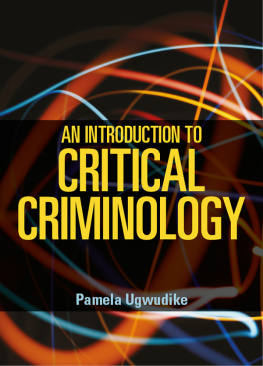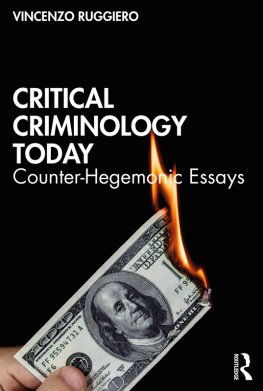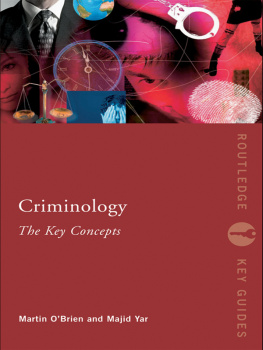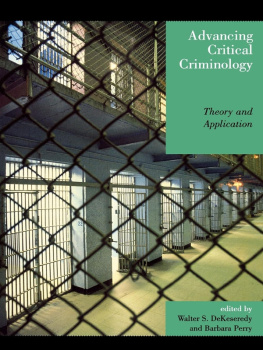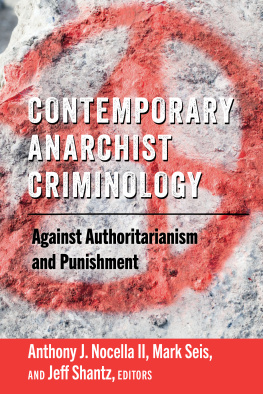Martin Schwartz - Controversies in Critical Criminology
Here you can read online Martin Schwartz - Controversies in Critical Criminology full text of the book (entire story) in english for free. Download pdf and epub, get meaning, cover and reviews about this ebook. year: 2010, publisher: Routledge, genre: Politics. Description of the work, (preface) as well as reviews are available. Best literature library LitArk.com created for fans of good reading and offers a wide selection of genres:
Romance novel
Science fiction
Adventure
Detective
Science
History
Home and family
Prose
Art
Politics
Computer
Non-fiction
Religion
Business
Children
Humor
Choose a favorite category and find really read worthwhile books. Enjoy immersion in the world of imagination, feel the emotions of the characters or learn something new for yourself, make an fascinating discovery.

- Book:Controversies in Critical Criminology
- Author:
- Publisher:Routledge
- Genre:
- Year:2010
- Rating:5 / 5
- Favourites:Add to favourites
- Your mark:
- 100
- 1
- 2
- 3
- 4
- 5
Controversies in Critical Criminology: summary, description and annotation
We offer to read an annotation, description, summary or preface (depends on what the author of the book "Controversies in Critical Criminology" wrote himself). If you haven't found the necessary information about the book — write in the comments, we will try to find it.
Controversies in Critical Criminology — read online for free the complete book (whole text) full work
Below is the text of the book, divided by pages. System saving the place of the last page read, allows you to conveniently read the book "Controversies in Critical Criminology" online for free, without having to search again every time where you left off. Put a bookmark, and you can go to the page where you finished reading at any time.
Font size:
Interval:
Bookmark:

Suzanne E. Hatty
Ohio University

2 Park Square, Milton Park, Abingdon, Oxon OX14 4RN
711 Third Avenue, New York, NY 10017, USA
No part of this book may be reprinted or reproduced or utilised in any form or by any electronic, mechanical, or other means, now known or hereafter invented, including photocopying and recording, or in any information storage or retrieval system, without permission in writing from the publishers.
No responsibility is assumed by the publisher for any in ury and/or damage to persons or property as a matter of products liability, negligence or otherwise, or from any use of operation of any methods, products, instructions or ideas contained in the material herein.
Controversies in critical criminology / edited by Martin D. Schwartz and Suzanne E. Hatty.
p. cm. -- (Controversies in crime and justice)
Includes bibliographical references and index.
ACQUISITIONS EDITOR Michael C. Braswell
| Martin D. Schwartz & Suzanne E. Hatty |
| Rick A. Matthews |
| Jody Miller |
| Walter DeKeseredy |
| Bruce A. Arrigo |
| Stuart Henry & Dragan Milovanovic |
| Jeff Ferrell |
| John Fuller |
| Rick Sarre |
| David Kauzlarich & David O. Friedrichs |
| Victoria L. Pitts |
| Kenneth Polk |
| Barbara Perry |
Font size:
Interval:
Bookmark:
Similar books «Controversies in Critical Criminology»
Look at similar books to Controversies in Critical Criminology. We have selected literature similar in name and meaning in the hope of providing readers with more options to find new, interesting, not yet read works.
Discussion, reviews of the book Controversies in Critical Criminology and just readers' own opinions. Leave your comments, write what you think about the work, its meaning or the main characters. Specify what exactly you liked and what you didn't like, and why you think so.

